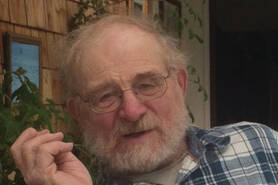Tribal Sovereignty In Alaska: How It Happened, What It Means,” a new book by eminent Native affairs historian Donald Craig Mitchell, is a dense and fascinating review of long years of legislation and litigation about the “sovereignty” concepts in their many variations. Beyond the reach of this book are the problems which remain for the grandmother on the village path: how to provide food, shelter and education; how to maintain peace and dignity in the community.
Plainly, the Native Claims Settlement Act of 1971 has not solved many of the problems leading to “community disintegration” well described in the 1988 Pulitzer Prize winning Anchorage Daily News series, “People In Peril.” Some form of sovereignty as a solution was a new possibility, an idea coming from the Cook Inlet village of Tyonek (which, interestingly, also funded the creation of the Alaska Federation of Natives).
Now the Alaska Native Corporations have prevailed, over the objections of “tribes,” to be entitled to the same rights and privileges of the existing sovereign tribes when it comes to COVID-19 relief funds. The leadership of some corporations seems, more and more, to be absorbed into the American corporate culture. By contrast, the sovereignty movement struggles against assimilation. If the ANCs are now “tribes with benefits,” perhaps they can and should better share the burden of local governments in towns and villages to provide safety, education and access to food, shelter and fuel.
Subsistence, claims settlement, sovereignty and the State, all together, have not been able to replace the natural livelihoods for indigenes before colonization. From my perspective, all have helped. When I was in Anchorage High School (mid-1950s), we discussed many failures of do-good missionaries and bureaucrats to assimilate Native people. I remember that Time Magazine, in 1963, called us out for abetting the desperate problems in Southwest Alaska, with the shortest lifespans in the U.S. and an infant mortality rate equaled only in Bangladesh.
Circling back to Donald Mitchell, he was part of the new class of do-gooders, sent out to help in the Native concentration center of Bethel, a hub for 50 Kuskokwim/Yukon villages. Along the way, he became a subsistence rights hero to rural residents, with a large hand in writing state and federal laws providing for priority uses when resources could no longer provide the abiding preferences for commercial guiding and urban hunter uses.
Now we come to an uncivil war between do-gooders. Mitchell gives great credit, while disputing his methods, to Robert Anderson, Native American Rights Fund attorney, for his persistence in advocacy for his own idea of sovereignty. The doubts remain on what the courts and Congress will, or should, continue to do on the disputes over sovereignty. So far, advocates, with the best of intentions, have not been much help to the grandmother on the village path. She still shoulders many burdens for the people in peril.
Larry Smith is just a Cook Inlet carpenter who is keeping an eye out for the underdog.


